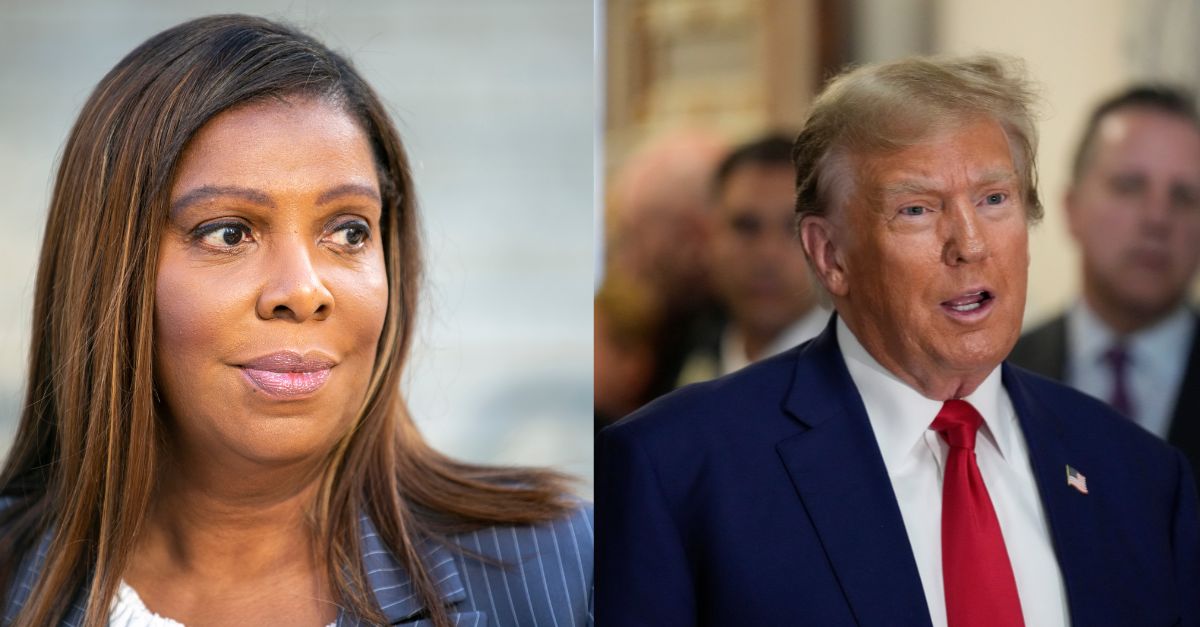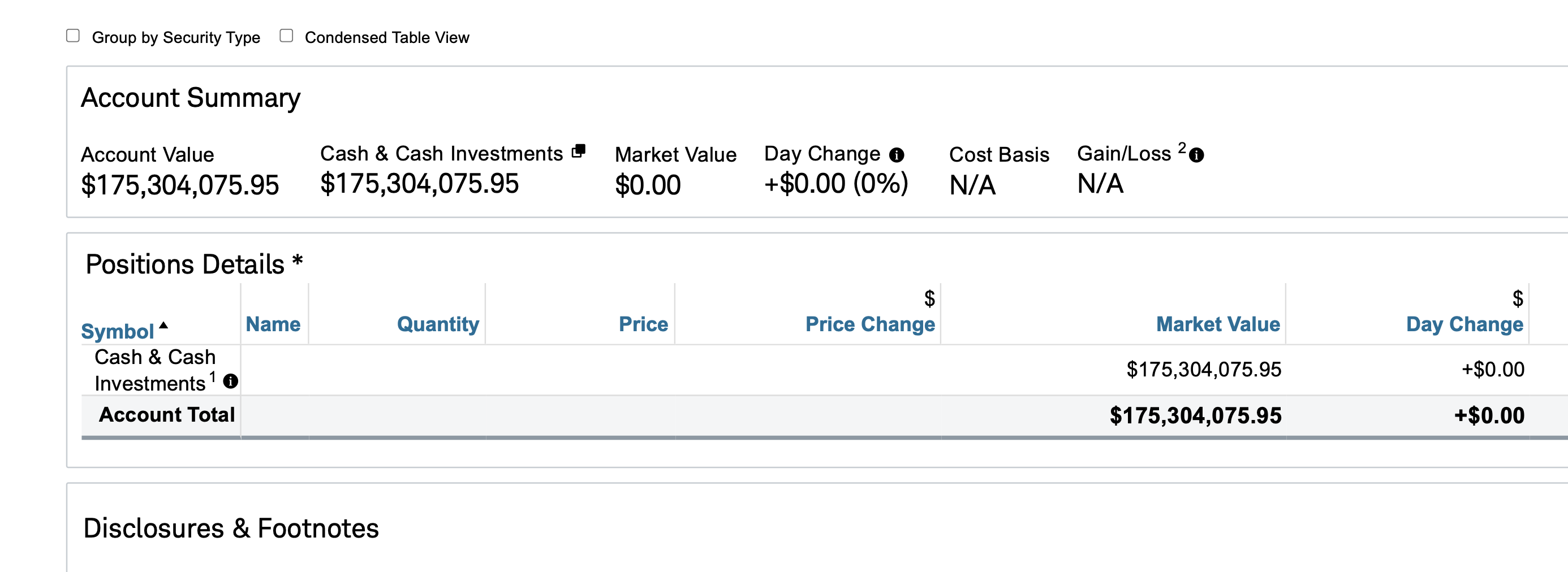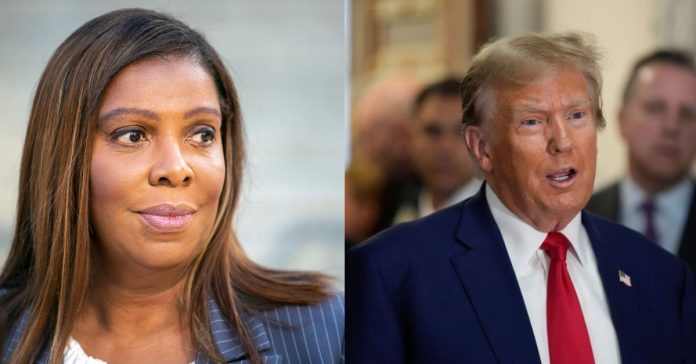
Left: New York Attorney General Letitia James speaks to the media, Nov. 6, 2023, in New York. AP Photo/Ted Shaffrey, File /Right: Former President Donald Trump speaks during a break in closing arguments at New York Supreme Court, Thursday, Jan. 11, 2024, in New York. (AP Photo/Seth Wenig)
The saga of Donald Trump’s efforts to secure a $175 million bond so he can appeal his massive civil fraud judgment continues, as attorneys on behalf of Knight Speciality Insurance Company (KSIC) and the former president have rejected the New York attorney general’s complaints about the “sufficiency of the surety to the undertaking.”
In early April, Knight and its owner Don Hankey entered the case to prevent AG James seizing Trump’s properties to start collecting on the $454 million civil fraud judgment. The bond got off to a rocky start, but once a corrected version was filed, James took “exception” to it anyway.
On April 4, James said that the bond was issued “without a certificate of qualification pursuant to Insurance Law § 1111” and that the Trump defendants or KSIC had to file, within 10 days, documents to “justify the surety.”
In a series of Monday filings, including a memorandum, affirmations in support, and exhibits, Trump attorneys and KSIC lawyers jointly filed to say that James’ “rare” exception “should be set aside” and that her office should be on the hook for the costs “incurred” by forcing their response.
While acknowledging that a “certificate of qualification” would do away with the need to justify the bond, the lawyers said in their memo that New York Supreme Court Justice Arthur Engoron can “justify a surety in the absence of a certificate” based on “overwhelming” documentary evidence that the “$175 million bond is fully collateralized by $175 million in cash” in a Schwab brokerage account which KSIC “has the right to exercise control over.”

Charles Schwab account attached as exhibit F
Trump lawyers said that James’ questioning of the bond was unnecessary and “sparse.”
“The NYAG’s exception is taken unnecessarily and should be set aside with costs. Her sparse notice identifies no insufficiency other than the failure to enclose a certificate of qualification,” the memo ended. “While a certificate would be dispositive evidence of justification, it is not the only evidence of justification. KSIC was and is authorized to issue the Bond here, and the Bond is more than sufficiently collateralized in the event the Court’s judgment is affirmed.”
Have a tip we should know? [email protected]

